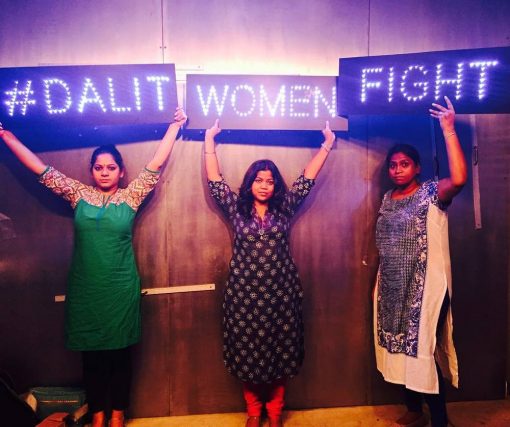
On June 21, 2018, Dalit Women Rights Activists presented witness accounts of the state of affairs of caste based violence faced by women and girls in India, to the United Nations Human Rights Council (UNHRC) in its 38th session in Geneva.
The report aims to find recommendations for policy and implementation within the UN and beyond, and "forge new alliances and partnerships and agree on international level strategies to help fight caste based violence and impunity in India". A panel of experts hearing the testimonies at Geneva include Ms Rita lzsak-Ndiaye, member of UN CERD Committee, who presented her first comprehensive report on caste based discrimination as a global phenomenon to the UNHRC in 2016, Ms Dubravka Simonovic, UN Special Rapporteur on Violence against Women and Ms. Vrinda Grover, Senior Advocate Supreme Court of India.
The report states how dalit women are protesting against impunity in connection with a spate of rapes and violence against Dalit women in Haryana, Uttar Pradesh, Bihar, Orissa, and Maharashtra, and believe that the police is involved. "The girls, their families and people from their community have been camping out and protesting in New delhi for months – demanding justice. They are afraid to return to their village in fear of violent reprisals from the dominant castes." it states.
The report titled "Voices Against Caste Impunity: Narratives of Dalit Women in India" further recounts that dalit women in India are often forced to work in modern slavery and are key targets for trafficking into slave labour and prostitution. Almost 98% of the women who are forced into the dehumanising work of manual scavenging are dalits.
The report quotes the National Family Health Survey, which states that by the age of 15, 33.2% scheduled caste women experience physical violence. It quotes several activists, who have worked with the National Dalit Movement for Justice, and notes the pattern of discrimination that starts early in the life of a dalit woman, slowly graduating from the education system to the woman’s access to healthcare or an infant's access to nutrition in India.
It harps on the recent implementation of the SC and ST Prevention of Atrocities Act by the Supreme Court that makes legal recourse and justice inaccessible for dalit women, in the recent times in India. It points at the Commission’s incompetence in understanding caste based violence against women in India.
The report quotes Savita, one of the respondents, saying “Caste makes a difference. We have seen during trainings, if there is even one non-Dalit woman, she will not let the Dalit women speak. She will speak non-stop in English to prove that she is superior. We Dalit women tend to push our sisters to speak up, but non-Dalit women reinforce the weaknesses of Dalit women.”
General Secretary of the coalision All India Dalit Mahila Mukti Adhikar Manch, Asha Kotwal, who is leading the presentation in UNHRC today, earlier stated, “let alone address issues specific to Dalit women, India has been stonewalling any discussion on caste ever it was raised at the United Nations World Conference in Durban in 2001. The point is not to shame India but to bring to the fore narratives of Dalit women and start a dialogue on the context of socio-economic vulnerability within which sexual violence increases. In the absence of any system domestically to deal with this kind of violence, we want to raise it within the international human rights framework.”




